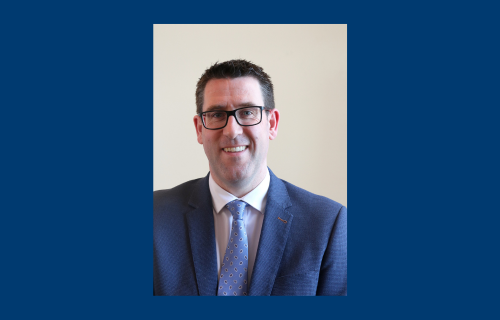Largest ever study in Autoimmune PAP - a rare disease which affects 7 people per million
Thursday, 21 August, 2025
Share

Congratulations to Associate Professor Cormac McCarthy on his recently published research in The New England Journal of Medicine (NEJM). This is the largest ever study in Autoimmune Pulmonary Alveolar Proteinosis (Autoimmune PAP), a rare disease which affects 7 people per million.
The trial, led in Ireland by Assoc Prof McCarthy of UCD School of Medicine, found that daily inhaled molgramostim can significantly improve both the breathing function and quality of life for patients with Autoimmune Pulmonary Alveolar Proteinosis (aPAP). aPAP is a rare lung disease where a buildup of a substance called surfactant prevents oxygen from entering the bloodstream. Molgramostim - a recombinant form of granulocyte-macrophage colony-stimulating factor (GM-CSF) - has been found to help combat this buildup.
The study would not have been possible without the support of the UCD Clinical Research Centre.
''This study represents a major breakthrough in the treatment of this rare and debilitating lung disease. Thanks to the expertise and support available through the Rare Disease Clinical Trial Network and the ERN Centre for Rare Lung Disease at St Vincent's University Hospital, Irish patients living with this condition were able to access the benefits of this groundbreaking study,'' said Assoc Prof McCarthy.
This study is a collaboration between researchers from Ireland, the US, Japan, Germany, Italy, Turkey, South Korea, France, Romania, and Denmark. The clinical trial was sponsored by Savara Inc with Professor Bruce Trapnell of the University of Cincinnati (RDCTN International Advisory Committee Member) as the principal investigator.
Key Points from NEJM Publication on IMPALA-2 Trial:
Autoimmune Pulmonary Alveolar Proteinosis (Autoimmune PAP)
- A rare lung disease where antibodies block GM-CSF, preventing immune cells from clearing surfactant from the lungs.
- Leads to excess surfactant, impaired gas transfer, shortness of breath, fatigue, and risk of fibrosis or need for lung transplantation.
- Historically managed with whole lung lavage, an invasive and burdensome procedure.
Trial Design (IMPALA-2)
- Global, pivotal, Phase 3 trial (largest and longest ever in autoimmune PAP).
- 48-week, double-blind, placebo-controlled, randomised study.
- Patients self-administered molgramostim (inhaled GM-CSF) daily via nebuliser vs. placebo.
- Conducted across 43 sites in 16 countries, including St Vincent’s University Hospital, Dublin (Irish lead site).
- Cormac McCarthy served as the Principal Investigator for Ireland.
Key Results
- Gas transfer improvement: Statistically significant improvement in DLco% (measure of lung gas exchange), with effects sustained to Week 48.
- Quality of life: Meaningful improvements in St George’s Respiratory Questionnaire (SGRQ) scores, especially in activity levels.
- Functionality: Improved exercise capacity (measured by peak METs), with benefits reaching clinically important thresholds.
- Surfactant burden: Reduced ground glass opacities on CT scans and reduced need for rescue lung lavage.
- Safety: Well tolerated, with mostly mild-to-moderate side effects; very high treatment completion rates.
Potential Impact for Patients
- First therapy to address the underlying cause of autoimmune PAP, rather than relying solely on invasive lavage.
- Potential to delay or prevent progression to lung fibrosis or transplant.
- Offers patients improved breathlessness, functionality, and quality of life.
Irish Context
- St Vincent’s University Hospital was a lead European site, reinforcing Ireland’s role in rare respiratory disease research.
- Participation places Ireland at the forefront of translational clinical trials in orphan lung diseases.
- The involvement of Prof. Cormac McCarthy strengthens Ireland’s contribution to rare lung disease expertise within Europe.
ERN-Lung Context (European Reference Network for Rare Respiratory Diseases)
- Ireland is a recognised partner in ERN-Lung, a European initiative linking centres of expertise for rare lung diseases.
- This trial and its publication highlight Ireland’s integration into European collaborative research and its ability to contribute to global standards of care in rare lung diseases.
- Strengthens Ireland’s case for being a hub for future rare disease clinical trials and specialised patient care.
Read the News Release from Savara (opens in a new window)here.
Read the research paper at NEJM (opens in a new window)here.